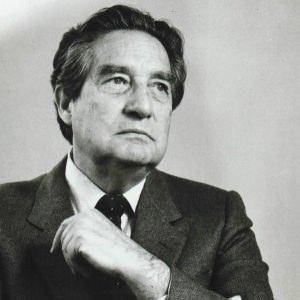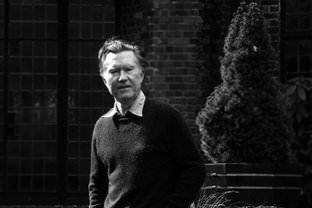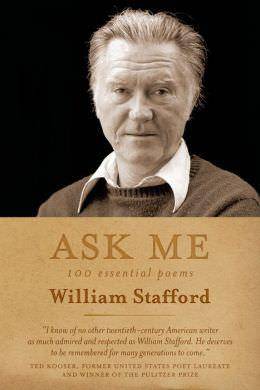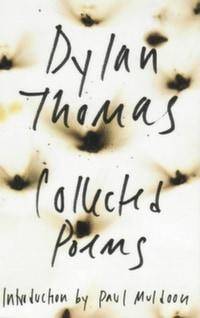Some people dread birthdays but for three of poetry’s most well-known voices, 2014 is a year to celebrate. Octavio Paz, William Stafford, and Dylan Thomas would all turn 100 this year. Though none of the three lived to blow out a century’s worth of candles—Paz died at 84 in 1998, Stafford at 79 in 1993, and Thomas at 39 in 1953—their work lives on. And since April is National Poetry Month, it’s the perfect time to discover new voices in verse.
To help you get acquainted with these three talented centenarians, BookTrib offers you a quick guide to each of these wholly unique voices and suggests where to start your reading journey.
Octavio Paz
The quick biography
A native of Mexico, Paz began his career as a poet with the encouragement of Pablo Neruda, eventually starting his own avant-garde literary magazine while in college. His work focuses on the intersection of language and culture, with equal helpings of philosophy, politics, and religion. Awarded the Nobel Prize in 1990, Paz was one of the most influential poets in the 1950s.
Paz’s work is most closely aligned with surrealism and existentialism.
Where do I start?
If you read Spanish, try Paz’s early volume, ¿Piedra de Sol (Sun Stone, 1957). (Added bonus and good trivia to casually drop at parties: it borrows its structure from the Aztec calendar.) In English, your best bet is the excellent Early Poems: 1935–1955 (tr. 1974).
Okay, Paz is great. Who else would I like?
Everyone should read Pablo Neruda, and if you’re a fan of Paz’s surrealism and political bent, Neruda is a logical next step.
William Stafford
The quick biography
Born in Kansas but most closely associated with the Pacific Northwest where he eventually settled to teach at Lewis & Clark College outside Portland, Oregon, Stafford was a conscientious objector during WWII, something that influenced his later work. While some—don’t be that person—might initially see Stafford’s poetry as simple since he doesn’t perform, say, the linguistic flips and twirls of poets like T.S. Eliot or Ezra Pound, Stafford’s work resonates with a deep inner life, akin to an earlier writer like Robert Frost. Awarded a coveted Guggenheim Fellowship, Stafford was also Consultant in Poetry to the Library of Congress in 1970, a post now known as the U.S. Poet Laureate.
Stafford’s poetry is deeply influenced by his pacifism and his connection to the land and the natural world. Said fellow poet G.E. Murray in National Forum, “Stafford generally has been appreciated as a plain talking but remarkably effective and influential American poet, one who has paradoxically fashioned a part of the mainstream of American poetry by keeping apart from its trends and politics.”
Where do I start?
Stafford was an incredibly prolific poet so an excellent introduction to his work is the recent collection, Ask Me, which includes 100 essential Stafford poems.
Okay, Stafford is great. Who else would I like?
Robert Frost and his reverence for nature will resonate for Stafford fans, as will the work of W.S. Merwin, whose poetry reflects his Buddhist leanings and ecological bent. To round out the trio, check out the work of multi-award-winning poet Louise Glück.
Dylan Thomas
The quick biography
Perhaps as well, or better, known for his off-the-page antics—and unfortunate fondness for alcohol—Welsh poet Thomas is decidedly difficult to categorize. Densely verbal and alliterative, Thomas played constantly with form, particularly in one of his best-known poems, “Do Not Go Gentle into That Good Night,” a villanelle. His marriage to Caitlin Macnamara was tumultuous at best (and inspired the 2008 Keira Knightley and Matthew Rhys film, The Edge of Love). His BBC Radio broadcast, from 1952, of A Child’s Christmas in Wales was a much-loved event.
Thomas’s work is most closely aligned—and again, he fought against being pigeon-holed—with the neo-romanticism movement, with hints of modernism, though unlike his contemporary, T.S. Eliot, he wasn’t concerned as much with social issues.
Where do I start?
Oddly enough, the best place to start is with the book published the same year Thomas died of a brain hemorrhage, The Collected Poems of Dylan Thomas. The pieces represent what the poet himself saw as his best work.
Okay, Thomas is great. Who else would I like?
If you like the verbal gymnastics of Thomas, James Joyce is probably right up your alley: these were men obsessed with words. Thomas also cited Gerard Manley Hopkins, one of the leading Victorian poets, as an influence. Seamus Heaney, an Irish poet who died last year, cited Thomas’s importance to his generation. And, for kicks, it’s definitely worth checking out this recording of fellow Welshman Richard Burton reading several Thomas poems.
Before you set forth to stock your shelves with new poetry collections, take a moment to enjoy this iconic poem from William Stafford, reprinted with permission of Graywolf Press:
Ask Me
Some time when the river is ice ask me
mistakes I have made. Ask me whether
what I have done is my life. Others
have come in their slow way into
my thought, and some have tried to help
or to hurt: ask me what difference
their strongest love or hate has made.
I will listen to what you say.
You and I can turn and look
at the silent river and wait. We know
the current is there, hidden; and there
are comings and goings from miles away
that hold the stillness exactly before us.
What the river says, that is what I say.
William Stafford. “Ask Me,” from Ask Me: 100 Essential Poems. Copyright © 2014 by the Estate of William Stafford. Reprinted with the permission of Graywolf Press, Minneapolis, Minnesota, www.graywolfpress.org.
Image Credits
Cover w/candles: http://wallstcheatsheet.com/stocks/a-historical-banking-birthday-happy-100th-fed.html/?a=viewall
Stafford: http://indianapublicmedia.org/poetsweave/story-true-poems-william-stafford/
Thomas: http://www.bbc.co.uk/blogs/wales/posts/the_death_of_dylan_thomas
Paz: http://ndbooks.com/author/octavio-paz











What a lovely poem.